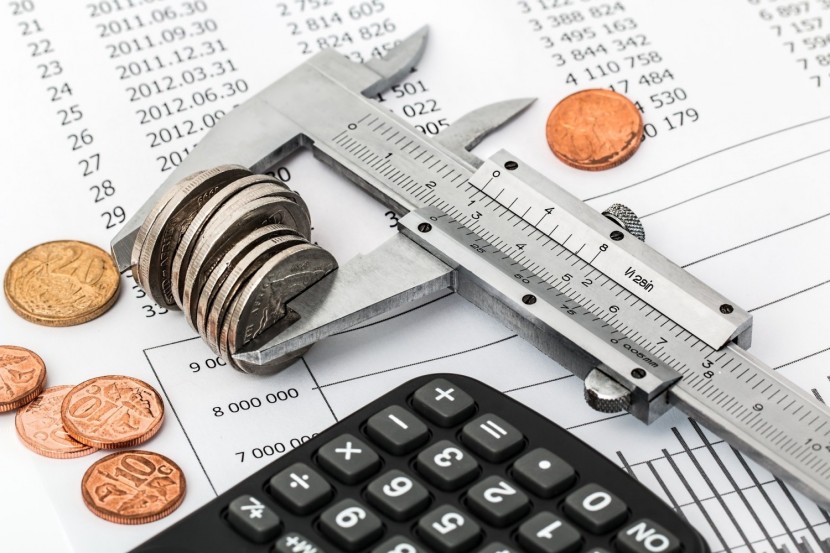
Debt consolidation isn't necessarily for everyone. A debt consolidation calculator can help you see if a debt consolidation loan makes sense for you. In addition to using a debt consolidation calculator, it can also be worthwhile to ask yourself a handful of questions before embarking on debt consolidation.
1. Is the interest rate better than my current rates?
For a debt consolidation loan to be beneficial, your new interest rate should be lower than the average of the current interest rates on your existing debt. If your new interest rate ends up being more than that, you'll end up paying more in the long run, meaning consolidation may not be the right option for you.
To get a sense of what interest rate you might qualify for with a debt consolidation loan, it's important to know your credit score. Your credit score, particularly your credit score range, will help determine the interest rate you'll qualify for.
Let's say you have the following debts:
Credit card 1: 18% APR
Credit card 2: 21% APR
Auto loan: 6% APR
Student loan: 5.8% APR
Your average APR is 12.7%. Interest rates on debt consolidation loans can range from about 6% to 36% APR. So if you get an offer for a debt consolidation that's significantly lower than 12.7%, it makes sense to consolidate your debt with a debt consolidation loan.
If you only want to consolidate your credit card debt and have a good-to-excellent credit score, you may want to consider a balance transfer card. Balance transfer cards typically come with a 0% introductory APR offer that can last from a year to 21 months.
If your credit score isn't where you want it to be, you may want to consider alternatives for how to consolidate debt with bad credit.
2. Will my overall monthly payment be lower than what I'm currently paying?
A lower interest rate would mean lower monthly payments, so you would pay less over the lifetime of the loan. But you need to make sure you're able to afford your new monthly payment before committing to consolidating your debt.
Using the above example, let's say your minimum monthly payments are as follows:
Credit card 1: $185
Credit card 2: $225
Auto loan: $165
Student loan: $150
That would bring your total minimum monthly payment to $725. If you're able to qualify for a debt consolidation loan that knocks down your minimum monthly payment to $500, the best thing to do is continue paying what you're already paying toward your debt-rather than dropping down to $500-so you can pay off your debt more quickly and pay less in interest over the long haul.
If your minimum monthly payment would be more than the $725 with a debt consolidation loan, then it's better to stand pat or use a different approach.
3. Is the new interest rate fixed or variable?
A low interest rate may pique your interest-pun all the way intended-but it's important to note whether the interest rate is fixed or variable.
A fixed interest rate stays consistent throughout the term of your loan, so if you get a 7% interest rate, that will stay the same. A variable interest rate, however, can change at any time without warning. You may start with a 7% interest rate, but if that's subject to change, you could wind up with a higher interest rate than your average interest rate before debt consolidation. This in turn would lead to a higher minimum monthly payment and a higher balance.
4. What's my new repayment timeline?
A debt consolidation calculator can help you determine how much faster you'd be able to repay your debt. Again, using the above example, let's say your balances are as follows:
Credit card 1: $5,694
Credit card 2: $7,971
Auto loan: $8,335
Student loan: $13,000
That would make your total debt balance $35,000. Depending on the method you choose to repay your debt, like the debt snowball or debt avalanche approaches, your timeline will differ. If, for example, you used the debt snowball method, and allocated $1,000 each month for repaying debt, you'd be debt-free in 41 months. Meanwhile, if you consolidated your debt and had an interest rate of 7% and continued to pay $1,000/month toward repaying debt, you'd be debt-free in 36 months and save nearly $4,000 in interest.
5. Am I able to avoid taking on new debt?
If you choose the debt consolidation loan route, you may be tempted to take on new debt because you're able to save. But tacking on new debt to your existing balance defeats the purpose of the hard work you're doing to reduce your debt and streamline your payments.
Maybe don't open a new rewards credit card until you've paid off your debt consolidation loan. If you feel like you're capable of avoiding new debt over the course of your debt consolidation loan, then this can be a solid option.
© 2025 HNGN, All rights reserved. Do not reproduce without permission.








